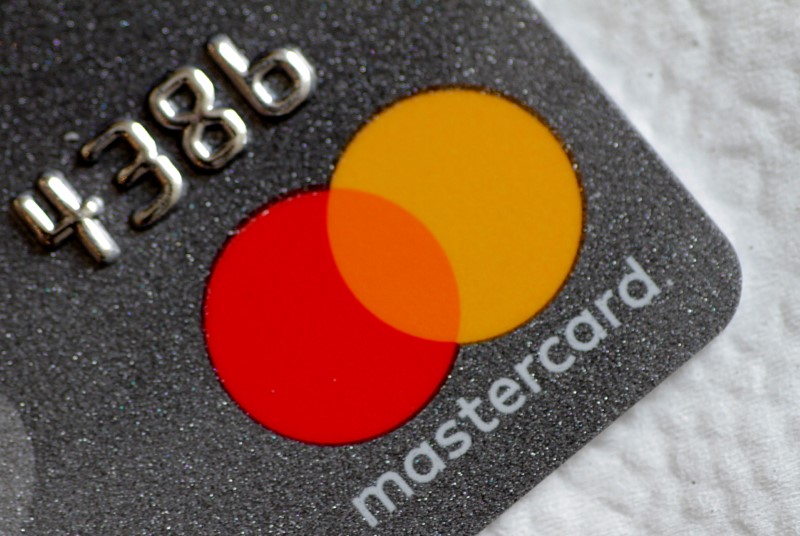Mastercard (NYSE:MA), along with its peer Visa (NYSE:V), have essentially monopolized the payments processing industry.
Over the years, Mastercard has been tapping into the full potential payments processing, essentially running the toll booth of daily transitions.
As Warren Buffet's quote goes, "Never invest in a business you cannot understand." Fortunately, Mastercard's business model is quite straightforward, with its operations being relatively frictionless.
Operating as a toll booth on our daily coffee swipes, or Netflix's (NASDAQ:NFLX) automatic subscription payment, Mastercard enjoys a smooth and predictable revenue stream. (See MA stock charts on TipRanks)
Further, due to Mastercard's long-term relationships with banking institutions globally (Visa has also built such relationships), the company features an unparalleled moat.
Investors often think of fintech companies such as Paypal (PYPL) and Square (SQ) as industry competitors, though this is hardly the case. As many useful and innovative features as these companies provide, they still utilize Mastercard's and Visa's very own processing networks.
Over the years, no competitor has managed to even come close to disrupting the payments processing industry. For this reason, Mastercard has produced market-beating returns over the years.
I am bullish on the stock. That being said, Mastercard shares do not come cheap these days.
Financials Strengthening
Mastercard's Q2 results showcased the company's quick rebound from last year's adversely impacted results.
Due to a great number of retail locations being forced to shut down in the midst of the pandemic, Mastercard's processing volumes had declined notably in the comparable period last year. Hence, Mastercard reported year-over-year Q2 revenue growth of 36%, to $4.53 billion. This marks a new quarterly record for the company.
The results were attributed to improvements across the board. Gross dollar volume growth was 33% on a local currency basis, reaching $1.9 trillion, as retail locations started reopening.
Further, cross-border volumes repaired significantly, growing 58% on a local currency basis, as international travel restrictions slightly eased compared to last year.
Going back to the aforementioned frictionless business model, Mastercard's gross margins remained, as always, at 100%. Think of Mastercard's revenues as "royalties" received for each payment processed, with essentially no cost of sales.
For this reason, net margins also remained sky-high, at 45.6%. Essentially, Mastercard's business model is so scalable that it should come as no surprise if net margins end up crossing the 50% threshold, as the company matures further, and global transaction volumes continue to increase.
Capital Returns & Valuation
Due to Mastercard's historically fat bottom line, management has been able to richly reward its shareholders through both dividends and stock buybacks.
The company has raised its dividend annually for 10 years now, with its latest DPS hike remaining in the double-digit range, at 10%.
Stock repurchases also remain aggressive. During the last four quarters, Mastercard has repurchased $6.29 billion of its stock. Since this has been the primary method for Mastercard to return cash to shareholders, the company has impressively bought back and retired around 27% of its outstanding stock since 2007.
That being said, Mastercard's quality financials and growing capital returns do not come cheap. The stock is currently trading with a forward P/E of 32.7, which is notably higher than its historical average.
Investors should not expect any meaningful valuation compression, nonetheless.
Wall Street’s Take
Turning to Wall Street, Mastercard has a Strong Buy consensus rating, based on 14 Buys, one Hold, and zero Sells assigned in the past three months. At $441.27, the average MA price target implies 26.8% upside.
Disclosure: At the time of publication, Nikolaos Sismanis did not have a position in any of the securities mentioned in this article.
Disclaimer: The information contained in this article represents the views and opinion of the writer only, and not the views or opinion of TipRanks or its affiliates, and should be considered for informational purposes only. TipRanks makes no warranties about the completeness, accuracy or reliability of such information. Nothing in this article should be taken as a recommendation or solicitation to purchase or sell securities. Nothing in the article constitutes legal, professional, investment and/or financial advice and/or takes into account the specific needs and/or requirements of an individual, nor does any information in the article constitute a comprehensive or complete statement of the matters or subject discussed therein. TipRanks and its affiliates disclaim all liability or responsibility with respect to the content of the article, and any action taken upon the information in the article is at your own and sole risk. The link to this article does not constitute an endorsement or recommendation by TipRanks or its affiliates. Past performance is not indicative of future results, prices or performance.
